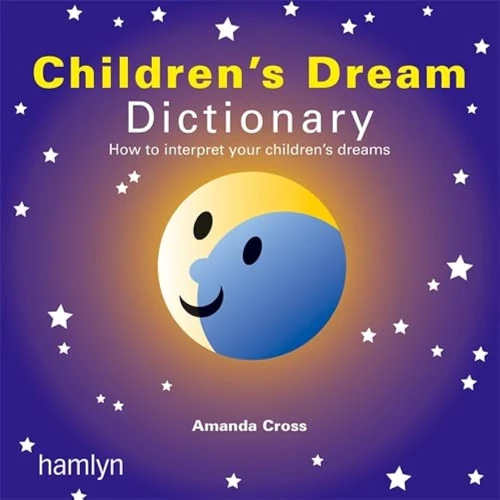The depths of a child’s subconscious mind can sometimes manifest in dreams that may leave parents perplexed and concerned. One such dream that can be particularly distressing is when a child dreams about the death of their parents. While the imagery of death in dreams may appear alarming, it is essential to understand the symbolism and meaning behind these dreams to provide reassurance and support for the child. By exploring the possible interpretations and offering emotional guidance, parents can navigate this unsettling experience with empathy and understanding.
Understanding Dreams

Dreams are enigmatic experiences that occur during the REM (rapid eye movement) stage of sleep. They often involve a combination of visual images, emotions, sensations, and narratives that can feel incredibly vivid and real. While the exact purpose and meaning of dreams are still a subject of debate in the field of psychology and neurology, they are believed to serve various functions, such as consolidating memories, processing emotions, problem-solving, and wish fulfillment. Some theories posit that dreams are a reflection of our unconscious desires, fears, and unresolved conflicts. Understanding dreams requires careful analysis of the symbols, narratives, and emotions present in the dream, as well as considering the individual’s unique experiences and personal associations.
Symbolism of Death in Dreams

The symbolism of death in dreams is complex and can vary based on individual experiences, beliefs, and cultural influences. In dreams, death often represents a metaphorical or symbolic transformation rather than a literal interpretation of mortality. It can signify the end of a chapter, a transition, or a release from something that no longer serves the dreamer. Death in dreams can also reflect subconscious fears, anxieties, or unresolved issues, providing an opportunity for introspection and growth. It is important to note that dreams are highly subjective, and the specific symbolism of death may differ from person to person based on their unique perspectives and life experiences.
Interpreting a Child’s Dream

Interpreting a child’s dream, particularly one that involves the death of their parents, requires a sensitive and nuanced approach. There are several key factors to consider when unraveling the meaning behind such dreams. First and foremost is the child’s age, as dreams can be influenced by their level of cognitive development and understanding of death. Secondly, exploring the context of the dream is crucial, including any recent experiences or changes in the child’s life that may have triggered such imagery. Additionally, the emotional response in the dream, whether it is fear, confusion, or sadness, can provide valuable insight into the child’s subconscious thoughts and emotions. By carefully examining these elements, parents can begin to unravel the symbolism and meaning behind their child’s unsettling dream, offering support and reassurance along the way.
1. Importance of Age
The age of the child plays a significant role in understanding and interpreting their dream about the death of their parents. Younger children, who are still developing their understanding of life and death, may have more literal interpretations of their dreams. For them, death may symbolize separation or loss, rather than representing an actual fear of mortality. They may struggle to articulate their emotions and rely on expressive symbols like death to convey their inner anxieties. Older children, on the other hand, may have a more nuanced understanding of death and may connect it to broader psychological and emotional themes. It is essential to consider the child’s age and developmental stage when interpreting their dream and the emotions associated with it.
2. Exploring the Context
Exploring the context of a child’s dream about the death of their parents is crucial in understanding its underlying meaning. Consider the specific details of the dream, such as the setting, people involved, and any other significant elements. Analyzing the context can provide insight into the child’s current life experiences, relationships, and feelings. For example, if the dream occurs during a period of significant change or transition in the child’s life, it may indicate anxiety or fear related to those changes. Similarly, if there are ongoing conflicts or challenges within the family dynamic, it could influence the symbolism and interpretation of the dream. By delving into the contextual factors surrounding the dream, a more nuanced understanding can be gained.
3. Emotional Response in the Dream
3. Emotional Response in the Dream
The emotional response exhibited by the child in the dream of their parents’ death holds significant importance in understanding the underlying message. Dreams can evoke a wide range of emotions, including fear, sadness, confusion, or even detachment. Paying attention to the specific emotions experienced by the child can provide valuable insight into their subconscious concerns and fears. For example, if the child feels overwhelming fear or panic in the dream, it could indicate a deep-rooted fear of separation or abandonment. On the other hand, if the child expresses sadness or grief in the dream, it may suggest a need for emotional support or a desire for closer connection with their parents. Analyzing the emotional response alongside other elements of the dream can help unravel its significance and guide in offering appropriate reassurance and support.
Possible Meanings and Interpretations

When a child dreams about the death of their parents, it can evoke a range of emotions and raise concerns for both the child and their parents. However, it is important to approach these dreams with an open mind and consider possible meanings and interpretations. One possible interpretation is that the dream may reflect a fear of separation or abandonment. Children may feel vulnerable and dependent on their parents for safety and security, and the idea of losing them can be distressing. Another interpretation is that the dream may symbolize a metaphorical transformation and growth within the child. Death in dreams can sometimes represent the end of a phase or the emergence of a new identity. Additionally, these dreams may indicate a child’s need for emotional support. They may be experiencing stress, changes in their environment, or challenges in their relationships, and their subconscious is manifesting these concerns through the death imagery. Lastly, the dream may be a sign of unresolved issues or trauma that the child may be grappling with. It is essential to consider any significant life events or experiences that could be influencing the content of the dream. By exploring these various interpretations, parents can gain insight into the potential underlying emotions and concerns that their child may be experiencing.
1. Fear of Separation or Abandonment
The presence of death in a child’s dream may stem from a fear of separation or abandonment. The image of losing one or both parents can symbolize the child’s fear of being left alone or neglected. This fear of separation is natural and can stem from various factors such as changes in the family dynamic, parental absence, or even a recent experience of being away from their parents for an extended period. It is crucial to address this fear and provide reassurance to the child that they are loved and cared for. Open and honest communication can help alleviate their concerns and reinforce the bond between parent and child.
2. Symbolic Transformation and Growth
Symbolic transformation and growth are key aspects to consider when interpreting a child’s dream about the death of their parents. In dreams, death often represents the end of one phase and the beginning of another, symbolizing transformative changes and personal growth. It is possible that the child’s dream may be reflecting their subconscious awareness of changes happening within themselves or their family dynamic. This dream could indicate that the child is going through a significant developmental phase or experiencing a shift in their relationships with their parents. The death imagery may not necessarily be literal but rather a representation of the child’s evolving identity and increasing autonomy as they navigate the complexities of growing up. Understanding the symbolic nature of the dream can help parents approach it with empathy and encourage their child’s personal growth and resilience.
3. Need for Emotional Support
In some cases, a child dreaming about the death of their parents may indicate a deeper need for emotional support. Dreams serve as a way for the subconscious mind to communicate and process emotions that may be difficult to express in waking life. The fear and anxiety associated with the dream could be an indication that the child is in need of reassurance, comfort, and a sense of security. It is important for parents to create an open and supportive environment where the child feels safe to share their feelings and concerns. Offering a listening ear, providing comfort, and expressing unconditional love can help alleviate the child’s fears and provide the emotional support they need to navigate their dreams and any underlying emotional challenges they may be facing.
4. Unresolved Issues or Trauma
Unresolved issues or trauma can play a significant role in a child’s dream about the death of their parents. Dreams often serve as a means of processing and integrating our past experiences and emotions.
Subscribe to Our Newsletter
Sign up to receive the latest news and updates.
Reassurance and Support
Providing reassurance and support is crucial when a child has a dream about the death of their parents. It is essential to communicate openly, calmly, and empathetically with the child to help them process their emotions and alleviate any anxiety or fear arising from the dream. Reassure the child that dreams are not always literal interpretations of reality, but rather symbolic representations of their thoughts and emotions. Encourage them to share their dreams and emotions, giving them a safe space to express their concerns. Reassurance can be further reinforced by reminding the child of the love and care they receive from their parents and emphasizing that their safety is a top priority. Reassurance and support can help the child feel secure and navigate through any distress caused by the dream. If needed, seeking professional help from a therapist or counselor experienced in dream analysis can provide additional guidance and support.
1. Communication and Reassurance
Communication and reassurance play a vital role in addressing a child’s dream about the death of their parents. It is crucial for parents to create a safe and non-judgmental space for the child to express their feelings and fears openly. Encourage open dialogue about the dream, allowing the child to share their emotions and thoughts without interruption. Reassure the child that dreams, although they might be unsettling, do not reflect reality. Provide comfort and affection, emphasizing that you are there for them and that their safety and well-being are a top priority. By actively listening and offering reassurance, parents can help alleviate the child’s anxiety and provide a sense of security.
2. Seeking Professional Help
When dealing with a child’s dream about the death of their parents, it is important to consider seeking professional help if the distress or anxiety persists. Consulting with a child psychologist or therapist experienced in dream analysis can provide valuable insights and support in understanding the underlying emotions and concerns behind the dream. These professionals can guide both the child and parents through the process of exploration and offer effective coping strategies. Additionally, therapists can help identify any potential underlying issues or trauma that may be contributing to the child’s recurring dream, and provide appropriate interventions or treatments if necessary. Seeking professional help ensures that the child’s emotional well-being is prioritized and that they receive the necessary support in navigating their dreams.
Conclusion
Reflecting on a child’s dream about the death of their parents can be a challenging but important process. By understanding the symbolism and potential meanings behind such dreams, parents can offer reassurance and support to their children. It is essential to consider factors such as the child’s age, the context of the dream, and the emotional response within the dream. Through open communication, reassurance, and seeking professional help if necessary, parents can help their child navigate any fears, anxieties, or unresolved issues that may be surfacing through their dreams. Remember, dreams are a reflection of our subconscious mind, and interpreting them can provide valuable insights into our emotional well-being.
Frequently Asked Questions
1. Why do children dream about the death of their parents?
The dreams about death in children can stem from a variety of factors, including fears of separation or abandonment, exposure to traumatic events, or unresolved emotional issues. Dreams often serve as a way for children to process their emotions and understand complex concepts, such as mortality.
2. Are dreams about death literal predictions of the future?
No, dreams about death should not be interpreted as literal predictions of the future. Instead, they are symbolic representations of psychological and emotional processes. It’s important to approach dreams metaphorically and consider the underlying meanings rather than taking them literally.
3. Can dreams about death indicate a child’s desire for harm to their parents?
No, dreams about death do not necessarily indicate a child’s desire for harm to their parents. Dreams often deal with fears and anxieties, and the symbolism of death may represent a deeper need for emotional support or resolution rather than a desire for harm.
4. How should parents respond to their child’s dream about their death?
When a child shares a dream about the death of their parents, it’s crucial for parents to respond with empathy and understanding. Reassure the child that dreams are a natural part of processing emotions and that they are safe and loved. Encourage open communication and offer support to address any underlying fears or concerns.
5. Can recurring dreams about death indicate a deeper issue?
Recurring dreams about death may suggest that there are underlying unresolved issues or traumas that need attention. If a child frequently has these dreams, it may be beneficial to seek support from a mental health professional who can provide guidance and assist in addressing any concerns.
6. What role does age play in interpreting a child’s dream about death?
The age of a child can provide valuable context when interpreting their dream about death. Younger children may have more difficulty expressing their emotions directly, so their dreams can serve as a window into their subconscious thoughts and feelings. Older children may have a better understanding of death and can engage in more in-depth discussions about their dreams.
7. How can parents explore the context of a child’s dream about death?
To explore the context of a child’s dream about death, parents should create a safe space for open conversation. Encourage the child to share any feelings or experiences that might be related to the dream. Understanding the context surrounding the dream can provide valuable insights into its possible meanings.
8. Is there a connection between a child’s emotional response in the dream and its interpretation?
Yes, a child’s emotional response in the dream can provide clues for the interpretation. For example, if the child feels scared or upset during the dream, it might reflect a fear of losing their parents or a need for emotional support. Identifying and discussing these emotions can help in understanding the underlying message of the dream.
9. Can dreams about death have positive meanings?
Yes, dreams about death can have positive meanings despite the initial fear they may evoke. Symbolically, death can represent transformation, growth, or the end of a challenging phase. It can also serve as a reminder to appreciate life and the relationships we hold dear.
10. Should parents seek professional help if their child has recurring dreams about death?
If a child consistently has recurring dreams about death that cause distress or disrupt their daily life, it may be beneficial for parents to seek professional help. A qualified mental health professional can provide guidance, support, and strategies to address and resolve any underlying issues contributing to the dreams.










